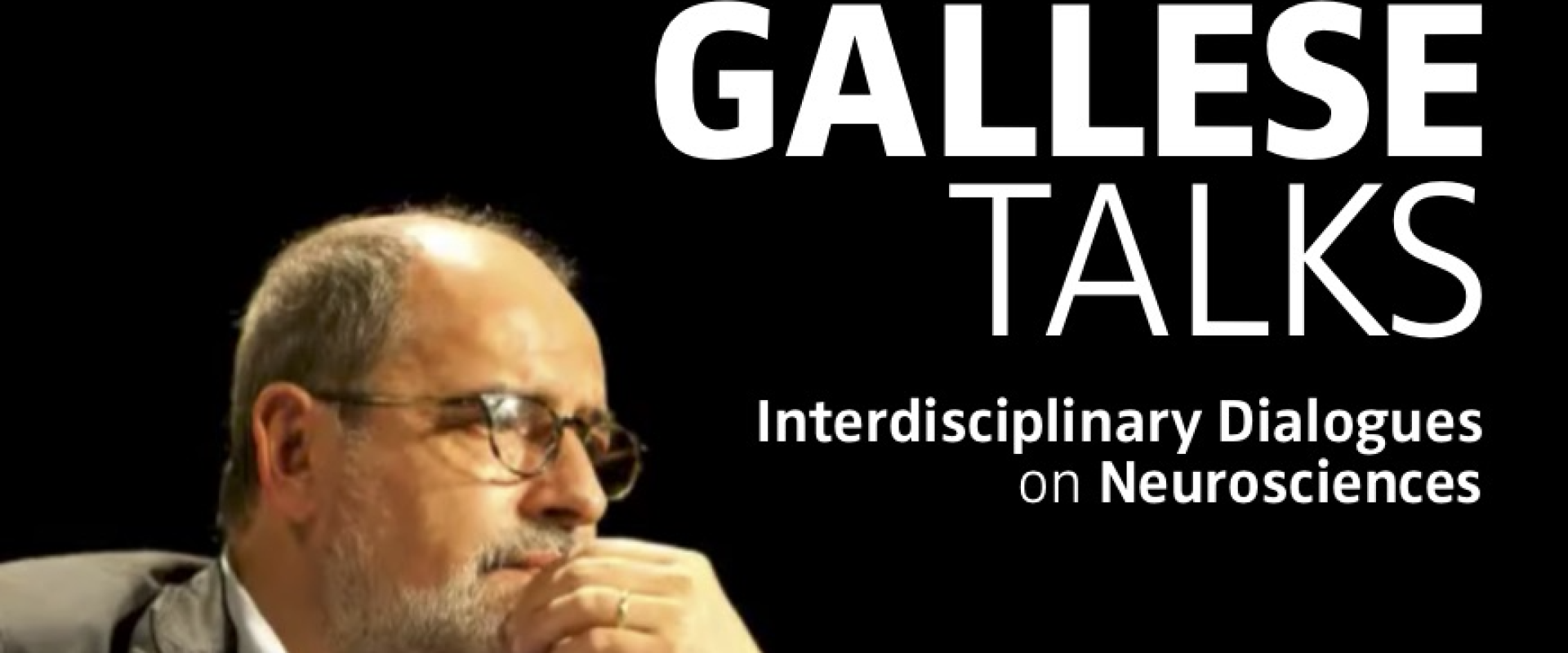

Die Eberhard Karls Universität Tübingen veranstaltet im Juni folgende Veranstaltungsreihe, zu der alle herzlich eingeladen sind:
Gallese Talks 2021 – Interdisciplinary Dialogues on Neurosciences
Livestream: https://www.youtube.com/unituebingen
Embodied simulation and experimental aesthetics. June the 9th, 7pm
By exploiting the empirical approach of neuroscience and physiology, we can investigate the brain-body mechanisms enabling our interactions with man-made images, shedding light on the functional mechanisms enabling their perceptual experience. In so doing we can deconstruct some of the concepts we normally use when referring to aesthetics and art. According to Hans Gumbrecht (2004), aesthetic experience involves two components: one deals with meaning, the other one with presence. The notion of presence entails the bodily involvement of image beholders through a synesthetic multimodal relationship with the artistic/cultural artifact. I will present some results of our research on visual art and film showing that the creative expressive processes characterizing our species, in spite of their progressive abstraction and externalization from the body, keep their bodily ties intact. Creative expression is tied to the body not only because the body is the instrument of creative expression, but also because it is the main medium allowing its experience.
Bodily Selves in relation: Neural Underpinnings of Interpersonal Relations and their disruption in schizophrenia. June the 23rd, 7pm
In spite of the historically consolidated psychopathological perspective, neuroscientific research applied to schizophrenia has so far almost entirely neglected the first-person experiential dimension of this syndrome, mainly focusing on higher-order cognitive functions, such as executive function, working memory, theory of mind, and the like. An alternative view posits that schizophrenia is a self-disorder characterized by anomalous self-experience and awareness. This view may not only shed new light on the psychopathological features of psychosis but also inspire empirical research targeting the bodily and neurobiological changes underpinning this disorder. Recent empirical evidence on the neurobiological basis of a minimal notion of the self, the bodily self, will be presented. The relationship between the body, its motor potentialities and the notion of minimal self will be illustrated. I will posit that this approach can shed new light on the self-disturbances and social deficits characterizing schizophrenia. I will propose that cognitive neuroscience can today address classic topics of psychopathology by adding a new level of description, finally enabling the correlation between the first-person experiential aspects of psychiatric diseases and their neurobiological roots. To this purpose, Ill describe putative neural mechanisms underpinning the blurring of self-other distinction in schizophrenic patients. I will posit that brain function anomalies of multisensory integration, differential processing of self- and other-related bodily information, mediating self-experience, might be at the basis of the imbalance in the pre-reflective relationship of the embodied self to the social world observed in schizophrenia.
Complex PTSD. Child and adolescent trauma and neglect in adverse environmental conditions. Ten years of research in Sierra Leone (Africa). June the 29th, 7pm
Over the past decade, in collaboration with the Ravera Children Rehabilitation Centre in Freetown, Sierra Leone Africa, we developed a research project with the goal of integrating psychological and anthropological approaches with neurophysiology for application to the study of child and adolescent trauma and neglect. We have worked with former child soldiers, child victims of sexual abuse, torture and maltreatment, focusing on the study of emotional regulation and emotion recognition. Key findings from these studies will be presented and discussed within the framework of the debated nosographic notion of Complex PTSD.

Tübingen ist ein besonderer Ort für Wissenschaft und Forschung. Nur wenige Standorte bieten eine solche Breite an Forschungsschwerpunkten in so großer Nähe - sowohl physisch als auch im übertragenen Sinne: Tübingens Forschungseinrichtungen sind nur einen Steinwurf voneinander entfernt und arbeiten im Rahmen des Tübingen Research Campus eng zusammen.
Mehr erfahren
Tübingen liegt im Herzen Europas sowie in einer von Deutschlands landschaftlich schönsten und wirtschaftlich wettbewerbsfähigsten Regionen. Tübingen liegt südlich von Stuttgart - nur 20 Minuten vom Flughafen Stuttgart entfernt - zwischen den Bergen der Schwäbischen Alb und des Schwarzwalds mit entsprechender Lebensqualität. Tübingen ist eine lebendige Stadt mit mittelalterlicher Innenstadt und einem reichhaltigen kulturellen und künstlerischen Angebot: Lesungen, Konzerte, internationale Filmfestivals und Märkte sorgen dafür, dass das Leben in Tübingen niemals langweilig wird.
Aktuell stehen noch nicht alle Informationen auf den deutschsprachigen Seiten zur Verfügung. Wir bitten um Ihr Verständnis während wir an den deutschen Übersetzungen arbeiten. Die englischsprachigen Seiten stehen Ihnen jedoch vollständig zur Verfügung.

Die Neurowissenschaften in Tübingen haben mit über hundert aktiven Arbeitsgruppen das Potential, zu den erfolgreichsten neurowissenschaftlichen Forschungsstandorten Europas zu zählen.
Mehr erfahren